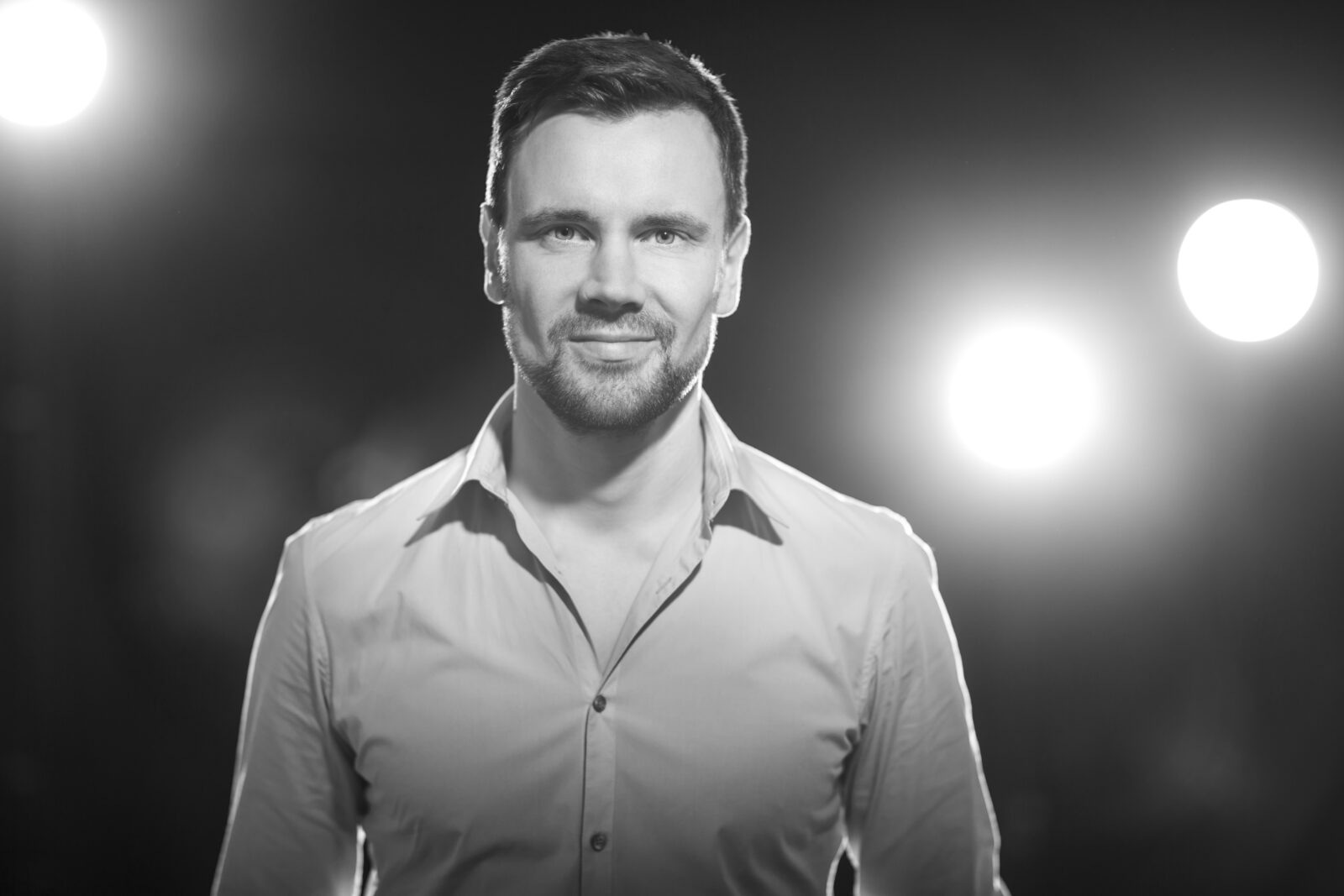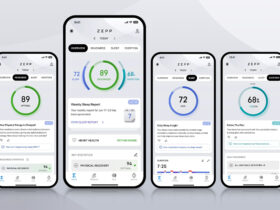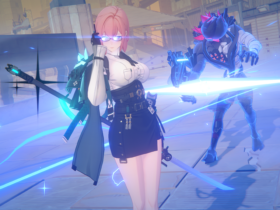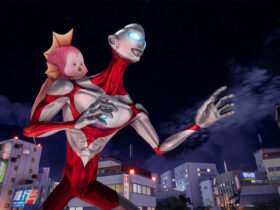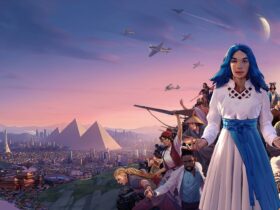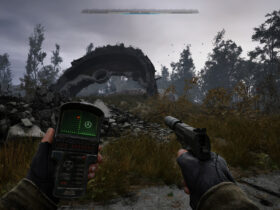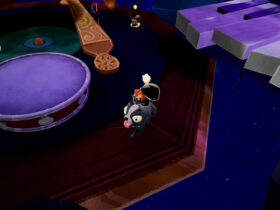What do gamers need? gamescom!
The pandemic has had a dramatic impact on the global trade fair business. Some games fairs, such as E3, have completely disappeared. gamescom, which now also takes place in Asia and South America and celebrated new records in Cologne this year, is a completely different story. We spoke to Felix Falk, Managing Director of game — Verband der deutschen Games-Branche (German Games Industry Association) and thus gamescom’s CEO, about the development and future goals of the world’s largest games event.
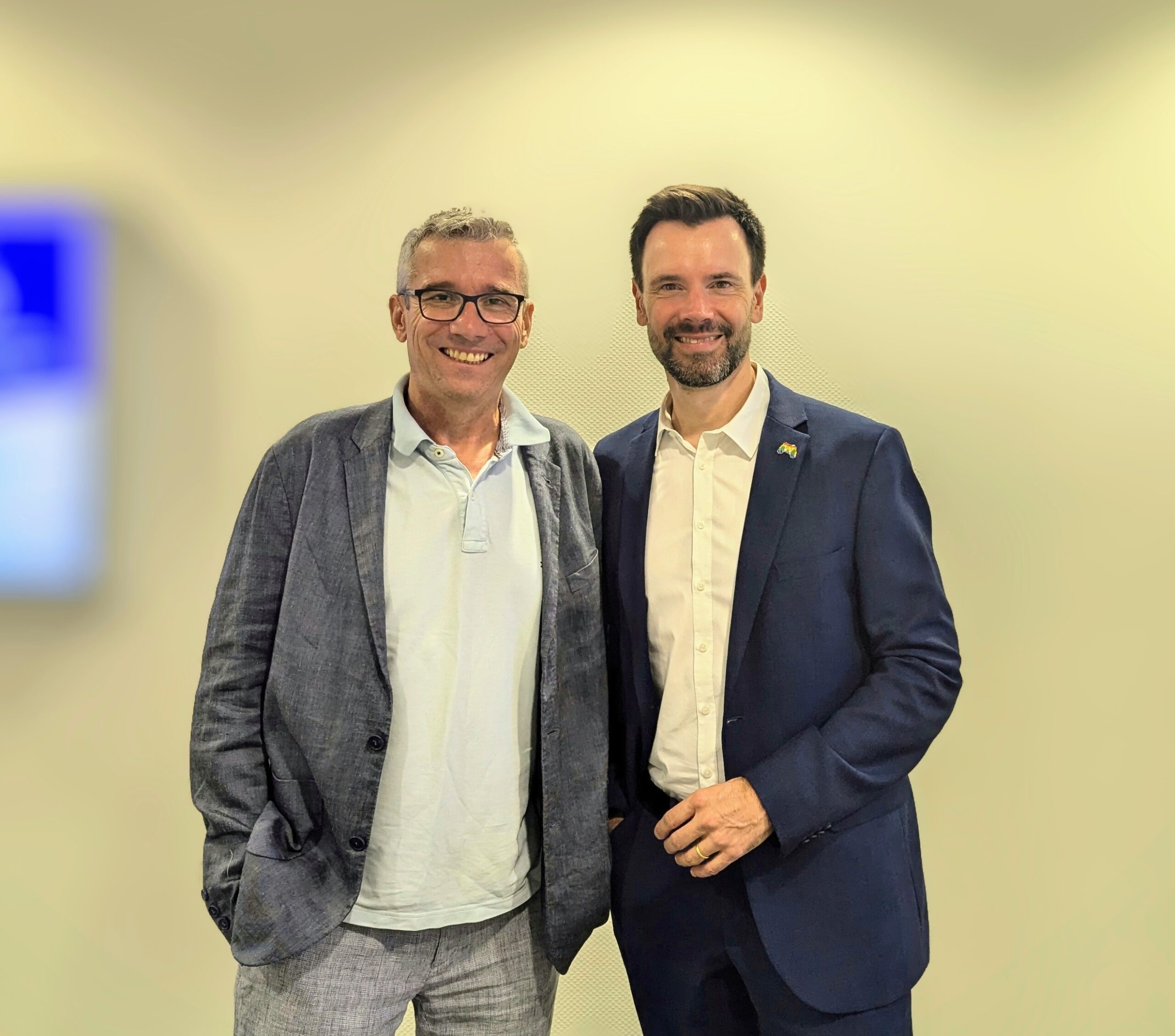
VGMAG: gamescom is now the world’s leading trade fair for the games industry. Looking to the future, what are the goals for gamescom as a brand and event?
Felix Falk: Well, first of all, we never say trade fair, because gamescom is much more than a trade fair. We now see it as a festival, a 360-degree festival, because it covers all aspects of games culture and the games industry. And of course we are proud of the fact that we have succeeded in having all of this here at gamescom in the great diversity that we see in games culture. The challenge or, as I tend to think in terms of opportunities, the huge opportunity we see at the moment is that the absence of the E3 has once again increased international interest. In terms of internationality and exhibitors, we have a 15 percent increase in exhibitors to over 1,400 exhibitors, and we have increased the number of country pavilions from 37 to 48. So that’s huge growth, especially in the international segment. And I think that is also a clear sign that there is a huge opportunity there.
VGMAG: What is the challenge?
Felix Falk: The challenge is to act and be just as dynamic every year in this dynamic industry, with gamescom as a stage for the industry and as a stage for the content that the industry offers. That means always covering new trends and always being the home for the trends of the culture, being quick to be where the community is going in order to offer them a home. I think that’s the fun of it and also the competence of gamescom. If we manage this well, as we have proven in recent years, then we will be successful.
VGMAG: That’s an amazing development. Three or four years ago, during the pandemic, we asked ourselves what the future would look like for trade fairs. I wouldn’t have expected gamescom to develop like this.
Felix Falk: Yes. We did a lot of things right in the coronavirus era, where others missed out on going “purely digital”. It was a tough job, really not subject to entertainment tax and was a lot of work. But we did exactly what the industry did as an event. With an Opening Night Live and a purely digital gamescom, we did something that we are now benefiting from. So we are now living even more in the hybrid world, and you can see that in the rest of the games world. We reflect that as gamescom. If we can represent this well, how the industry operates and what the community is like, then we are also the best home for it.
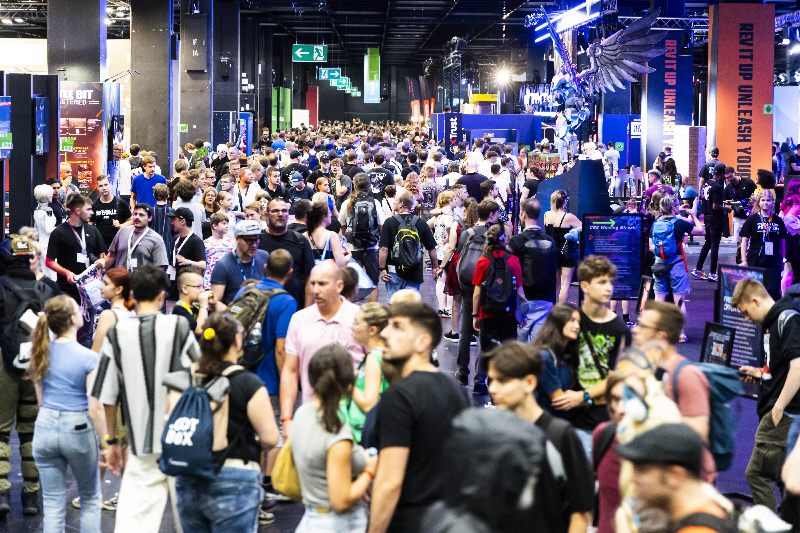
VGMAG: What is the main difficulty in positioning and organizing gamescom in this unique and constantly changing industry?
Felix Falk: You simply have to be very close and follow every movement in order to really be at the top of your game. We have now positioned ourselves even more broadly with gamescom asia and gamescom latam. We were particularly pleased this year with how successfully gamescom latam got off to a direct start with hundreds of thousands of visitors. Of course, this is also an additional strength because these events became possible because gamescom has become a global brand. We were also able to bring the satellite events, i.e. gamescom as a brand, to other continents and this naturally strengthens the brand and reflects back and cross-fertilizes each other. And that’s a very good opportunity to really position the topic globally over the course of the year in such a way that gamescom is simply indispensable.
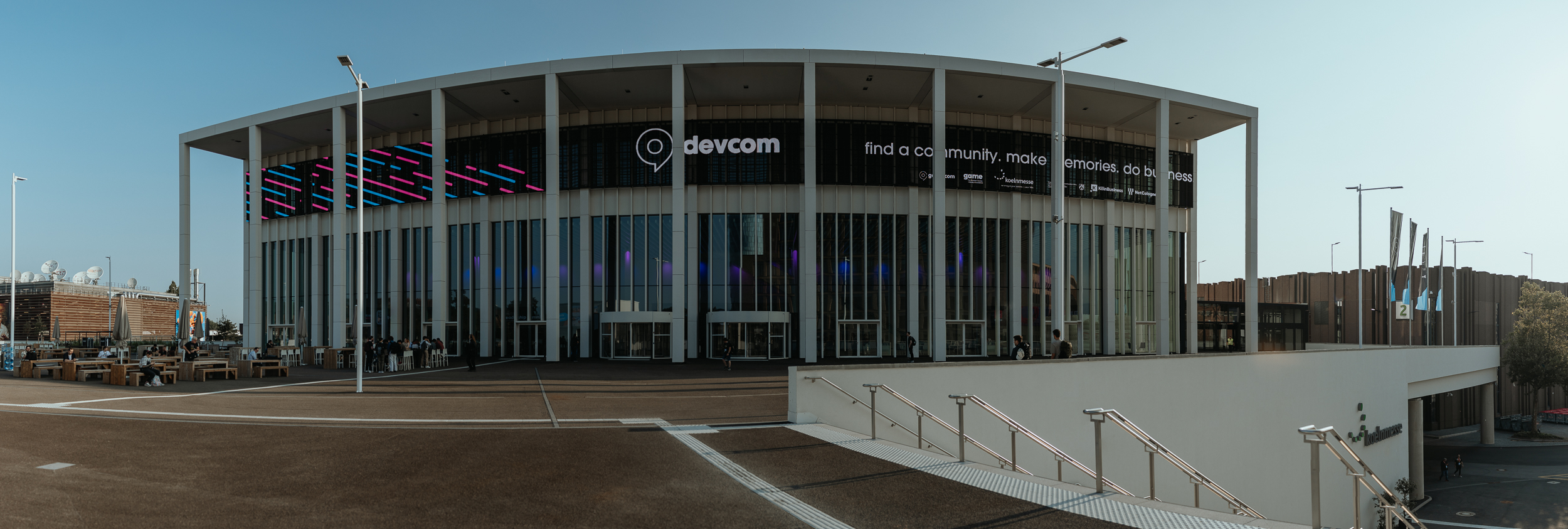
VGMAG: When looking at gamescom as a whole, there is also a developer trade fair, devcom, which takes place directly beforehand. How important is this event strategically and the link and synchronization with gamescom?
Felix Falk: It’s super important. It’s a family with a smooth transition. We are seeing that more and more international visitors are not only making their appointments on the few business days due to this increased internationality, but are actually taking the whole week. It is so relevant for them to be here in Germany at the end of August that they simply need more days. There is a great transition from the core developer topics with 45% growth and over 5,000 people, who then really use the whole week. So devcom is the perfect start, where there is still time to deal with content, really sit down in talks, learn and have very intensive meetings without all the hustle and bustle of hundreds of thousands of people around you. And then on Wednesday we’ll go into the rocket with meetings every half hour.
VGMAG: Then it will be really stressful for trade visitors.
Felix Falk: But having both is also important, because then there is also time for intensive discussions. That’s why it’s a perfect mix that the public doesn’t even notice. But it’s not intended for them, it’s for business. And that’s why gamescom has become so important as a business platform.
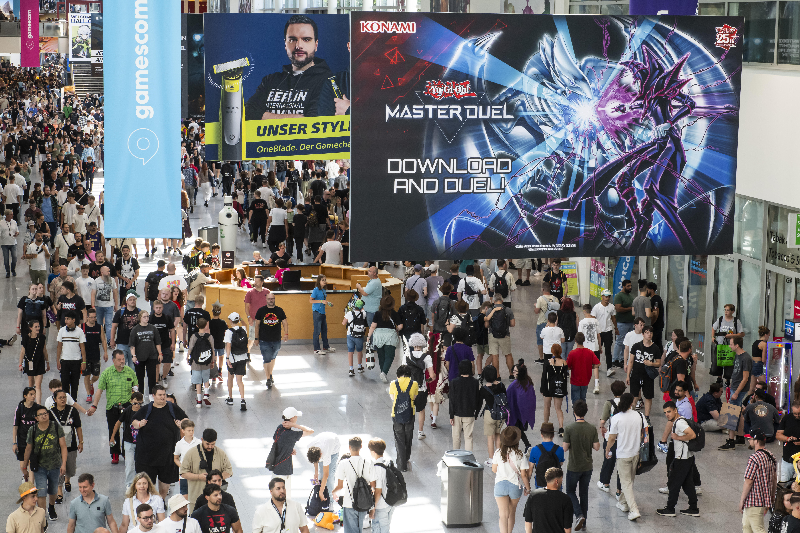
VGMAG: Europe was followed by Asia and South America for gamescom. There hasn’t been a games event in the USA for years now after E3 was discontinued. Is this an opportunity to think about bringing gamescom to America as well?
Felix Falk: gamescom doesn’t need a satellite in the USA for itself. gamescom is a global brand, and we deliberately chose Latin America for the latest satellite. Not only because we have a perfect mix of partners there and an existing event where we could build up directly and make it really big. But also because Brazil is of course an incredibly exciting growth market. And there’s a lot of music playing there at the moment. Whether the USA will need gamescom at some point remains to be seen. Of course, we are always open to good ideas. But we’re not proactively looking for new locations right now because we’d rather do what we do really well than scale badly.
VGMAG: My personal opinion is that E3 has always been a bit of a detriment to gamescom in the sense that a lot of things were already known in June that you then saw again in August.
Felix Falk: We never used to see it as competition, because the fact that E3 and gamescom were firmly scheduled in the calendar also had a lot of positive aspects. Of course, the absence of E3 also shook things up for the companies, which then had to get used to the annual calendar. Also in terms of the importance of physical events. As gamescom, we are now among the last to have to prove again and again how important events or hybrid events are. We now have to present this for the industry alone, but fortunately we’re managing it well.
We are taking advantage of this shortcoming at E3, especially for the American market, to avoid giving the impression that it would be enough to do everything digitally. In other words, we also see it as our mission to immerse people here in games culture again and again. We want them to realize that this is a very intense experience, especially for the community. What’s on top here, and what others can’t do, is that it’s a platform where the entire industry comes together. Of course, you can have a fan festival and everyone can invite their core community, but that’s something completely different compared to our festival here. It’s simply unique.
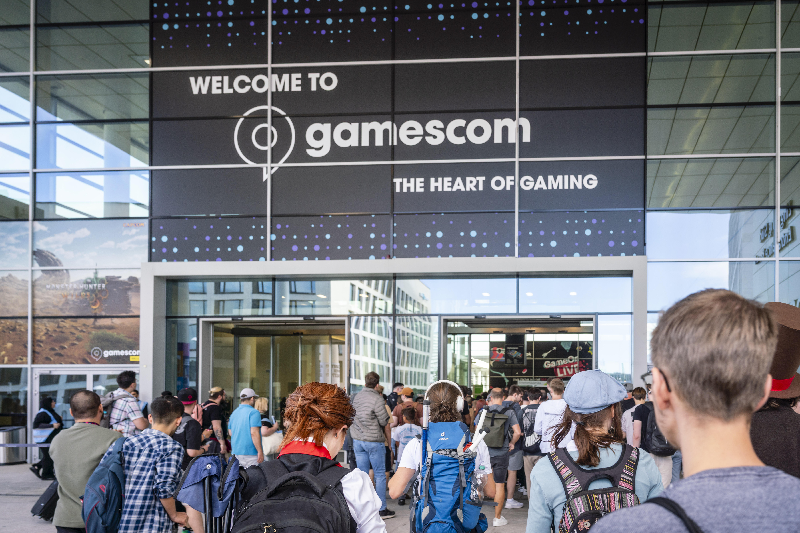
VGMAG: If you look at the regions of North America, Asia, and Europe from a publisher and developer perspective, it’s noticeable that Europe and Germany in particular are rather weak. Does this have any significance for gamescom and devcom?
Felix Falk: From a bird’s eye view, the strength of individual locations is not so important for gamescom because it is an international event. It’s naturally associated with Germany because people love Cologne, because they like our culture. But for us, for me as an association, it is of course painful to see that the music that is played here at gamescom is made elsewhere and not in Germany. We always have to search intensively to show the good examples from Europe in relation to the mass of good offers from other countries. In other words, it’s our job, and above all the job of politicians, to ensure that we have the framework conditions to grow. And that in ten years’ time there will be many more stands, many more games and many more highlights from Germany and Europe. But I don’t think that’s so important for the people who visit gamescom.
VGMAG: It’s fair to say that there are a number of committed politicians who don’t just make announcements, but actively campaign for better framework conditions, such as Dr. Mehring, the Digital Minister from Bavaria, or Media Minister Liminski from North Rhine-Westphalia.
Felix Falk: Yes, that’s right!
Felix Falk: The gamescom award is a very important element in the gamescom universe. It always gives us the opportunity to single out special games. We have an excellent jury made up of international journalists who, together with the community, really highlight certain categories. On 230,000 square meters with 1400 exhibitors, you have such a huge variety that it’s really nice to pick out the highlights that are appreciated by professionals and the community. And what’s also nice is that we have a “Heart of Gaming” award, which is independent of games and has an overarching meaning. This year, “Games protect democracy” won. It’s simply a wonderful example of the potential that games have and how games can have a positive impact. And I am delighted with the jury’s decision to focus on the positive contribution that games can make in these times of disinformation, historical forgetfulness and hostility towards democracy. We see this very often here at gamescom and it is also important to draw the public’s attention to such great examples.
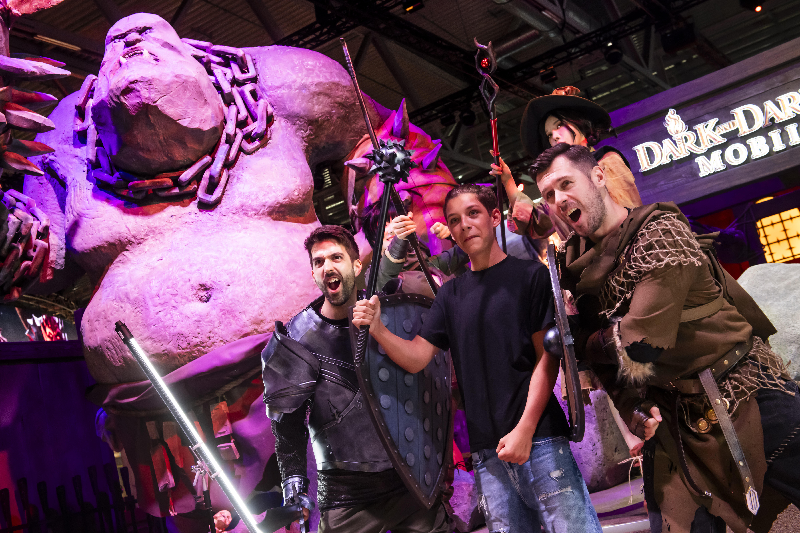
VGMAG: The perception and positioning of video games in the public eye compared to culture, art, films and music: how do you think this has developed in recent years?
Felix Falk: I think there have been steps. From interest to understanding. Towards recognition. Towards enthusiasm. And in all the different areas of what games can do. The cultural aspect and the artistic aspect are being increasingly recognized and we can also see that this pop-cultural phenomenon of games is now so widespread that it appears in all areas – music, fashion, film. And games are now also totally recognized in all areas of culture, so that the Museum of Modern Art now collects games just as much as the French National Library. This is simply the most relevant medium of our time and represents a further development in the long history of culture. Especially because it has always been the only medium that has always been digital and therefore of course brings exciting new things with it.
There’s also a great example here at Gamescom with Amaze, who do really crazy, experimental, totally funny, exciting installations with games. You sometimes forget that when you see the big blockbusters. I think the most relevant, creative stories are told through games today and gamescom shows that.
VGMAG: Last question: What do gamers need?
Felix Falk: gamescom.
VGMAG: Perfect closing words. Thank you very much, Felix!
If you’ve enjoyed this interview, be sure to continue perusing the vaults here at vgmag.co.uk!
Interview conducted by Marco Accordi Rickards and Hans Ippisch.


